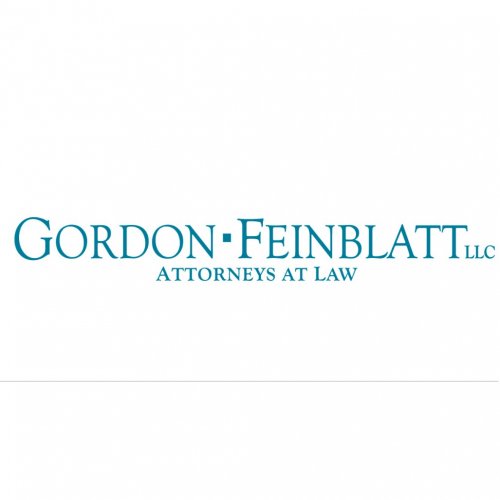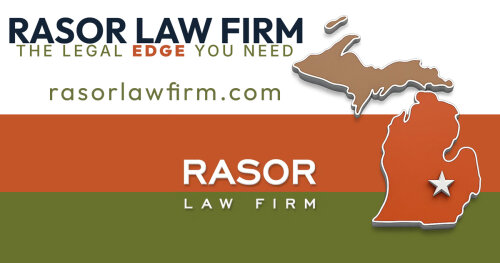Best Debt & Collection Lawyers in Maryland
Share your needs with us, get contacted by law firms.
Free. Takes 2 min.
Or refine your search by selecting a city:
List of the best lawyers in Maryland, United States
About Debt & Collection Law in Maryland, United States
Debt and collection law in Maryland involves the rules and regulations that govern how debts are collected from consumers and businesses. If you owe money or are attempting to collect a debt, both state and federal laws provide protections and set boundaries for how collections can be handled. These laws are designed to ensure that both creditors and debtors are treated fairly during the collection process. Whether you are struggling with overdue credit cards, medical bills, or facing collection lawsuits, understanding the basics of Maryland’s debt and collection laws can help you protect your rights and navigate this challenging situation.
Why You May Need a Lawyer
Many people turn to attorneys when faced with debt and collection issues to ensure their rights are protected. Common situations where legal help is needed include:
- Receiving frequent or harassing calls from debt collectors
- Being sued for an unpaid debt
- Facing wage garnishment, property liens, or bank account seizures
- Negotiating settlements or payment plans with creditors
- Dealing with errors or inaccuracies on credit reports
- Understanding your rights under state and federal laws, such as the Fair Debt Collection Practices Act (FDCPA)
- Bankruptcy advice when debts are unmanageable
A qualified lawyer can assess your financial situation, explain your legal options, represent you in court, and help you reach a fair resolution with creditors or debt collectors.
Local Laws Overview
Maryland has specific statutes that address debt collection, supplementing federal laws like the FDCPA. Key aspects of local laws include:
- Statute of Limitations: Creditors have a limited time to sue for the recovery of debts. In Maryland, most consumer debts have a 3-year statute of limitations, while some written contracts may allow up to 12 years.
- Collection Practices: Maryland’s Consumer Debt Collection Act (MCDCA) prohibits collectors from using threats, harassment, or deceptive practices.
- Exemptions & Protections: Certain types of income and assets are exempt from garnishment, including a portion of wages, social security benefits, and public assistance.
- Licensing: Collection agencies must be licensed by the state to legally collect debts in Maryland.
- Notice Requirements: Collectors are required to provide written notice of a debt, informing consumers of their right to dispute or validate the debt within 30 days.
- Garnishment Limits: Maryland law limits the amount of wages that can be garnished to 25 percent of disposable earnings, or the amount by which weekly wages exceed 30 times the federal minimum wage, whichever is less.
Frequently Asked Questions
What should I do if I am contacted by a debt collector in Maryland?
First, verify the debt and ask the collector for written notice. You have the right to request validation of the debt within 30 days. Do not provide personal or financial information until you confirm the legitimacy of the claim.
Can a debt collector sue me for an old debt?
Maryland law sets a statute of limitations on most consumer debts (typically 3 years). If the debt is past that period, you may have a defense in court. However, it is important to respond to any lawsuit or court notice you receive.
How much of my wages can be garnished for unpaid debts?
In Maryland, up to 25 percent of disposable earnings may be garnished, or the amount by which your earnings exceed 30 times the federal minimum wage, whichever is less. Some income, such as Social Security and certain public benefits, is exempt from garnishment.
Are debt collectors required to be licensed in Maryland?
Yes. Any person or company collecting debts on behalf of others must have a license to operate as a collection agency in Maryland.
Can I negotiate a repayment plan with a creditor?
Yes. Many creditors are willing to discuss payment plans or settlements, especially if you are facing genuine financial hardship. Document all agreements in writing, and do not agree to terms you cannot meet.
What are my rights if a collection agent is harassing me?
Under both federal and Maryland law, debt collectors may not use threats, abusive language, or repeated calls intended to harass you. You can send a written request to the collector to stop further contact and report violations to state and federal authorities.
What happens if I ignore a collection lawsuit?
If you do not respond to a collection lawsuit, the court may issue a default judgment against you. This can result in wage garnishment or bank levies. It is important to respond promptly and seek legal advice if you receive a court notice.
Will a paid-off collection remain on my credit report?
Generally, collections can stay on your credit report for up to seven years from the date of the first missed payment, even if paid in full. However, paying off the debt may improve your overall credit status.
Is bankruptcy an option for resolving debt in Maryland?
Yes. Bankruptcy can offer relief from collection activities and discharge certain debts. There are different types of bankruptcy, each with specific eligibility requirements and consequences that should be carefully considered with legal counsel.
Can a collector garnish my bank account in Maryland?
Yes, but only after obtaining a court judgment against you. Some funds in your account, such as Social Security or public assistance, may be protected from garnishment by federal or state law.
Additional Resources
- Maryland Attorney General's Office: Provides consumer protection resources and handles complaints against debt collectors.
- Office of the Commissioner of Financial Regulation: Licenses and regulates collection agencies and can verify if a collector is registered in Maryland.
- Maryland Legal Aid: Offers free legal advice and representation to eligible low-income residents facing debt collection issues.
- Consumer Financial Protection Bureau (CFPB): Provides sample letters and educational materials about debt collection and consumer rights.
- Maryland Judiciary Self-Help Centers: Offer guidance on how to respond to debt collection lawsuits and court forms for self-represented litigants.
Next Steps
If you are experiencing debt or collection problems in Maryland, here is how to proceed:
- Gather all relevant documents, including debt notices, correspondence from collectors, court papers, and your payment records.
- Review your rights under Maryland and federal law, or consult trusted resources as listed above.
- If harassed or sued by a collector, do not ignore the matter. Respond to all court notices and consider contacting a qualified attorney.
- Consult with a lawyer who has experience in Maryland debt and collection law. Many offer free or low-cost initial consultations.
- If eligible, seek assistance from legal aid organizations for representation or advice.
- Keep written records of all communications with creditors or collectors.
Seeking legal guidance early can help you understand your options, protect your assets, and work toward a resolution that fits your financial circumstances.
Lawzana helps you find the best lawyers and law firms in Maryland through a curated and pre-screened list of qualified legal professionals. Our platform offers rankings and detailed profiles of attorneys and law firms, allowing you to compare based on practice areas, including Debt & Collection, experience, and client feedback.
Each profile includes a description of the firm's areas of practice, client reviews, team members and partners, year of establishment, spoken languages, office locations, contact information, social media presence, and any published articles or resources. Most firms on our platform speak English and are experienced in both local and international legal matters.
Get a quote from top-rated law firms in Maryland, United States — quickly, securely, and without unnecessary hassle.
Disclaimer:
The information provided on this page is for general informational purposes only and does not constitute legal advice. While we strive to ensure the accuracy and relevance of the content, legal information may change over time, and interpretations of the law can vary. You should always consult with a qualified legal professional for advice specific to your situation.
We disclaim all liability for actions taken or not taken based on the content of this page. If you believe any information is incorrect or outdated, please contact us, and we will review and update it where appropriate.
Browse debt & collection law firms by city in Maryland
Refine your search by selecting a city.











